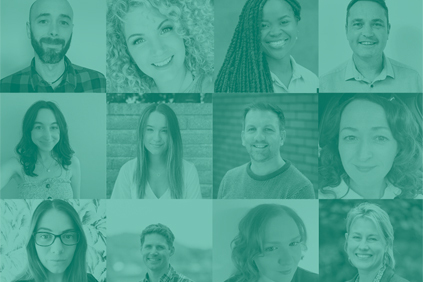We recently ran a 12-week discovery working with the Welsh Government’s neurodivergence and learning disabilities team to identify how we might provide faster and easier access to resources and support for people (and their support network) waiting for a neurodivergence referral or assessment.
We wanted to explore how we could make providing and gathering information to support a neurodivergence referral and assessment more effective and efficient.
We made several recommendations and have now been tasked with doing some work to support the recommendation of using a digital product to gather and store information during the referral process.
What we mean by a digital product
A product that:
- is centralised and used by all neurodivergence services nationally
- allows multiple informants to be invited to login to an online tool where they are asked to fill in one or more forms to provide pre-specified information about an individual
- prevents informants from being able to submit the forms until all mandatory information has been provided
- makes the information available to the team requesting it in a digital format – ideally, the product automatically combines and presents the collected information in the most useful format for the professional to carry out the task they need the information for, minimising manual effort
There are many additional features that would further enhance the value of this product.
Evidence to support this recommendation
During the discovery phase, we gathered lots of evidence to support this recommendation.
Many professionals we spoke to have made or are considering making their own versions using the digital tools available to them, such as Microsoft or Google Forms. They report this helps somewhat with efficiency and ease of use but only provides a fraction of the benefits that a dedicated product could provide.
“It would be transformational... it would just be a game changer for the whole service, and not just the service, but for the service users as well. And I'm pretty sure it will be seen as them having more control over what's happening.”
A digital information gathering product is standard in the commercial sector, where there is a strong focus on maximising efficiency and providing a good user experience.
Delays and cycles of to-ing and fro-ing to gather complete sets of information is common, wasting both professionals’ and users’ time. This would be greatly reduced by a digital product.
Users complain of having to provide the same information multiple times, and professionals mentioned that this is a problem too. A sole product where all professionals involved in a case can see the information gathered so far could eliminate this.
“I think a digital platform would be amazing… I've always felt with neurodiversity it's so much more about the coordination of all that information at the right time. And that's probably the key to this process working. Having all that information at the same time that's visible to everybody on a computer system would be absolutely amazing.”
Co-ordinating, distributing and keeping track of information gathering from multiple informants for multiple individuals are very time consuming and error prone. A digital product could automate much of and display information on the progress of each case.
Significant failure demand is generated by users checking on the progress of their case. A digital product could keep them informed automatically.
The lengthy periods of time involved in neurodivergence pathways means that situations can change significantly between questionnaires being issued. A digital product could readily support more regular updates by informants.
A digital product can offer a wider range of accessibility options to support diverse needs, which is especially important in this space.
Professionals currently spend a huge amount of time piecing together chronologies or manually cutting and pasting information from multiple sources into reports. A digital product could automatically collate the information and transform it into the best format to support the professional to do their job.
“It's difficult sometimes just to put everything down on paper again and again, it's a very cold process... if we had a portal that you could access and upload things that would be useful.”
Existing digital products and capabilities
Over the next 5 weeks we will be exploring and testing potential solutions which would meet the needs of users and professionals. This work will allow us to look at potential products without any commitment until we are confident that the best solution meets the following criteria:
- the Digital Service Standard for Wales
- user needs
- partner business needs
- common best UX practice
- considerations when designing for neurodiverse audiences
- service target outcomes
If you would like to know more about this work, please contact Delivery Manager, Poppy Evans – poppy.evans@digitalpublicservices.gov.wales
